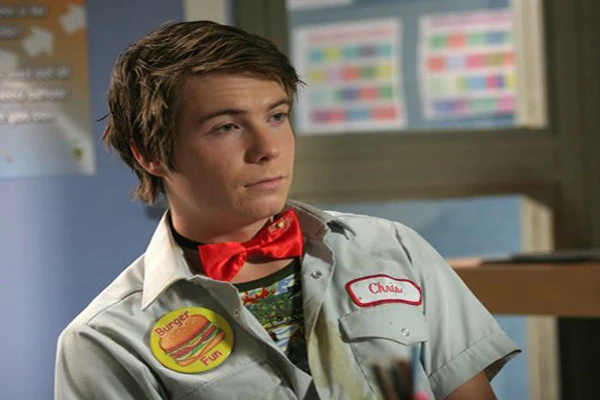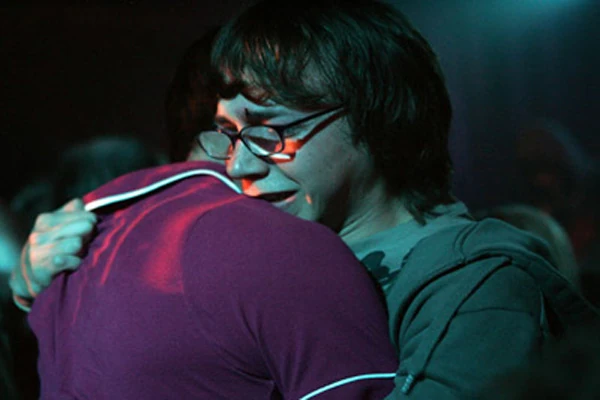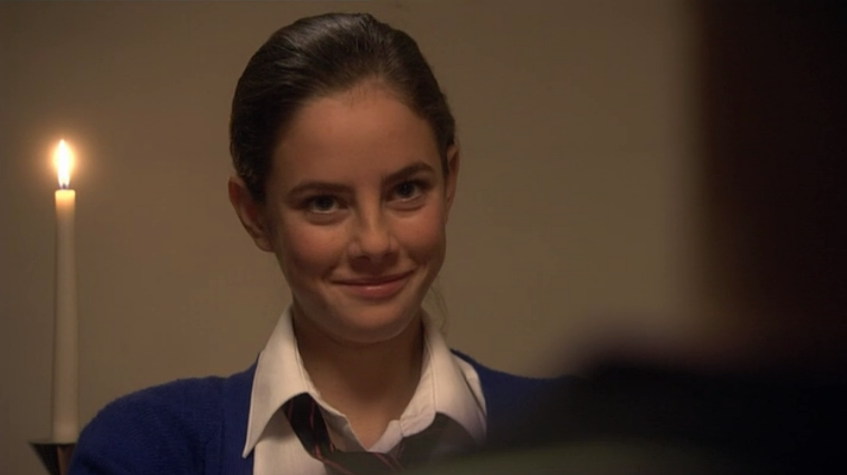Skins: Season Two, "Tony" and "Effy"
Series Two, Episode Six, “Tony”
Your mileage will vary on how much you get out of “Tony”. It
amounts to an episode about how Tony got his mojo back.
This is not necessarily a narrative a certain corner of Skins’s audience (myself included) is
particularly interested in. After all, this is a fairly awful human being and his
redemptive arc has tried far too hard to create sympathy for a character that
really hasn’t earned it. The show hinted at character progression towards the
end of the first season and that felt mostly natural (if not also a little
rushed). But the show had to use an external development to create an internal
shift. And it hasn’t proven nearly as effective has intended. It also doesn’t
help that we get glimmers of the Old Tony, the shitty, sadistically clever
bastard who messes with people out of a deep sense of insecurity.
We see this Tony in the opening and closing scenes of the
episode, the only scenes that can be said to have happened in a literal
reality. Because the other element that makes “Tony” a hard to take episode is
that it’s a bizarre blend of Freudian and Jungian symbolism played with
absolute sincerity. Let’s ignore for the moment whether this works, and take a
moment to remember that the show has never told its narrative in this manner
before. I’m not saying that it’s not allowed to. But Skins has at least had some consistency as to how it tells its stories
and the ways it’s capable of telling them. Even when it gets semi-adventurous,
it’s usually in a manner of perspective or tone, not necessarily in fundamental
storytelling genetics.
So besides the questionable choice of storytelling, how good is it at actually telling this type of story? The results are mixed. It’s a
tiny bit sexy but mostly it’s obtuse and obscure. The scenes with the
burn-victim soldier/professor don’t feel like they’re of a piece with
everything else. Too much of what the show is trying to say is incredibly
obvious, while other elements are so thoroughly enigmatic as to be
incomprehensible.
If you’re able to embrace the story and accept what it’s going
for, there’s certainly a mysterious allure to the episode (For one thing, it’s
one of the best directed episodes of the series). But the real question is
whether Tony’s trip of self-discovery had to take place in such a cryptic and
abstract way (or, for that matter, at all).
Series Two, Episode
Seven, “Effy”
Skins has a Second
Season Problem (one not isolated to this generation of characters). The writers
burn through all the story they have to tell with a group of characters and
then scramble to create drama and say meaningful things in the following
season. The Tony-Michelle-Sid-Cassie story is a darker, more toxic take on what already
occurred last season.
The series’ second seasons aren’t devoid of value. After
all, this is a narratively more adventurous season that’s pushing its characters
into interesting emotional territory. Even if it’s not always successfully
doing what it’s attempting, I appreciate that it is reaching for it in the
first place.
But we can already see that the show is exhausting
its potential with this group of characters.
This is an episode designed to essentially act as a
back-door pilot for the next season. Effy is going to be the character that
bridges the two generations of characters. She’s young enough that she doesn’t
have to be written off just yet, and the writers are exploring how she’ll act
as her own force of drama in the seasons to come. If we have doubts about the
long-term shelf life of the show, the writers are attempting to assure us that
they can still find stories about new characters.
And that bodes well. Frankly, Effy already appears to be a
more intriguing center of conflict than her brother. There’s a gleeful
wheeling-dealing quality to her manipulations and she does them in the name of doing something good (even if that’s
very low on the list of reasons she does it). She’s playing the mind-games that
Tony was known for in the first season, but in a different vein informed by her
gender and her different personality.
There’s a meta quality here. Effy derisively refers to the
love rhombus drama as a “bad soap opera” and intervenes to end the tedium of
it. At this stage, Effy sort of knows she’s a television character (this won’t
remain true for later seasons). By the end of the episode, everyone is coupled
up, and Effy has proven herself a character worthy of our ongoing interest. She’s
incredibly perceptive of human behavior, and yet (dramatic irony alert) she
barely understands herself (The
possibilities! *he said sarcastically*)
This is a smart use of this character without detracting
from the larger, on-going narrative. It integrates her in, while hinting at a
life beyond the typical stories we’ve been getting from the rest of the first
generation (including the introduction of other future second generation alum
daffy Pandora)
Grade: B











